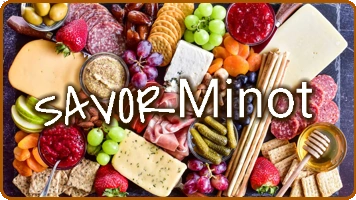By Dragan Miljkovic, NDSU Professor & NDSU Extension Service
Food security remains one of the major problems that humanity faces in developing and developed parts of the world.
For example, the U.S. Department of Agriculture’s Economic Research Service estimates that 14.3 percent (17.5 million) of U.S. households were food insecure at some time during 2013. The latest Food and Agriculture Organization estimates indicate that globally, about 795 million people were chronically undernourished in 2012-14.
Various definitions of food security exist, but prevailing may be one as agreed upon at the 1996 World Food Summit: “A situation that exists when all people, at all times, have physical, social and economic access to sufficient, safe and nutritious food that meets their dietary needs and food preferences for an active and healthy life.” This ambitious definition has proved to be elusive to reach so far.
The definition has three major supports on which it relies: availability, access and utilization. Most efforts so far have been placed on the supply side, or the availability issue. While major progress has been made in that area, the insistence on new technologies that would make affected regions food self-sufficient seems to be ignoring basic tenets of economic efficiency. In other words, being able to produce some food while being economically inefficient cannot help integrate these regions into the global economic map.
Moreover, a lack of institutions and the seemingly inevitable tragedy of the commons in agricultural resource uses seems to be pointing against these economically counterintuitive strategies that have been pursued for decades by the international agriculture organizations. The tragedy of the commons is a term for a situation in which individuals, acting according to each one’s self-interest, behave contrary to the best interests of the whole group by depleting some common resource.
The access and utilization represent the demand side of the food security problem.
A different problem often occurs here. Multiple intermediaries, be it domestic governments or international organizations, often choose to exclude other similarly relevant players when it comes to the access and distribution of food aid. These strategic behaviors and cognitive biases of participants may and often do lead to the tragedy of the anticommons, often denying the endangered population any access to existing world food surpluses.
The tragedy of the anticommons is a type of coordination breakdown in which those who have rights to a resource prevent others from using it, frustrating what would be a socially desirable outcome.
Economics is primarily a normative science, and it is based on some well-defined theories of individual and organizational behavior. When measuring poverty, and in turn the related issue of food security, relying on normative economic measures of these phenomena and corrective policies resulting from them may not be sufficient. Indeed, this is a humanistic as much as it is an economic problem.
Novel approaches to food security are being proposed. On the demand side, some economists consider that mechanisms of the quality, effectiveness and efficiency of the food security system should be evaluated by their impact on the quality of life of endangered populations. While no consensus exists on how the quality of life is defined, it is assumed to be those aspects of an individual’s subjective experience that relate directly and indirectly to the ability to lead an active and healthy life.
On the supply side, the motives of food aid donors and food security providers, directly and via policy mechanisms, are discussed in the context of the perceptions of the recipients’ deservingness.
As a welfare or food aid recipient, when is one to be content with his or her situation? Just because the quality of life may have improved to some extent, does that guarantee the person is content with his or her quality of life?
For instance, does the delivery of food aid to a poor country following a serious drought or civil war outbreak solve the problem of those impacted by the situation? Do welfare disbursements such as food stamps to the unfortunate (unlucky) ones – for example, abandoned children or mentally ill individuals – solve their problem?
If not, is further aid and welfare distribution warranted? If not, should the donors continue to be concerned and keep sending aid and helping those in need? Is the perception of welfare or food aid recipients about their quality of life relevant at all to those who are “footing the bill,” or is it the donors’ perception of who deserves to receive the help?
These dilemmas are exactly the reasons why economists try to think about food security as an economics problem only, rather than socio-economic-psychological-development nexus, because that may be the only way to come up with a set of standards in decision making. Yet the effectiveness of such an approach only can be measured relative to achieving the goals set out by the donors, assuming fully rationally behaving economic agents.
However, food security is so much more than an economic issue. Rather, it is a humanistic issue, and dealing with it as if it were an economic issue only ultimately will lead to short-term solutions that could, in some cases, even further destabilize the food security situation among the welfare recipient population.
Rational outcomes imply rational agents, and rationality, as we understand it in economics, is not necessarily behind behaviors exhibited in food security problems. If food security programs are motivated or driven by institutional, political and ideological – environmental – arrangements rather than evolution-created inner mechanisms, the estimate of successes of such programs and ultimately their duration are likely to be determined by the interests of food security (welfare and food aid) providers rather than the success and failure of such programs to improve the quality of life of the endangered populations.
Too often, we see stick-and-carrot policies by welfare states where disbursement of any help is conditioned on making institutional or political changes among the recipient populations. On the other hand, the pressure that welfare and food aid recipients are expected to change their institutional arrangements could lead to perceived lower quality of life even if the food security problem could be resolved in the short run. In the long run, these types of policies only perpetuate food security problems, which often are coupled with other, more serious political and institutional problems.
Food security is a problem that requires a humanistic approach rooted in the evolutionary process of the human race. While food security can be misused by the recipients of food aid and welfare for political or other purposes, the use of food security programs by food aid and welfare donors, targeted at achieving ideological, institutional and political goals of the donors, would be at the bottom of the ethical barrel of human behavior.
While this asymmetry may appear unjust to some, saving human lives should remain a noble cause in all ideologies or political systems of the world, even at the cost of occasional rewards to the “cheaters.” Studies on the perception of recipient deservingness certainly could help us, as a human race, better understand our behaviors and attitudes toward the needy segments of the population within the food security framework.


